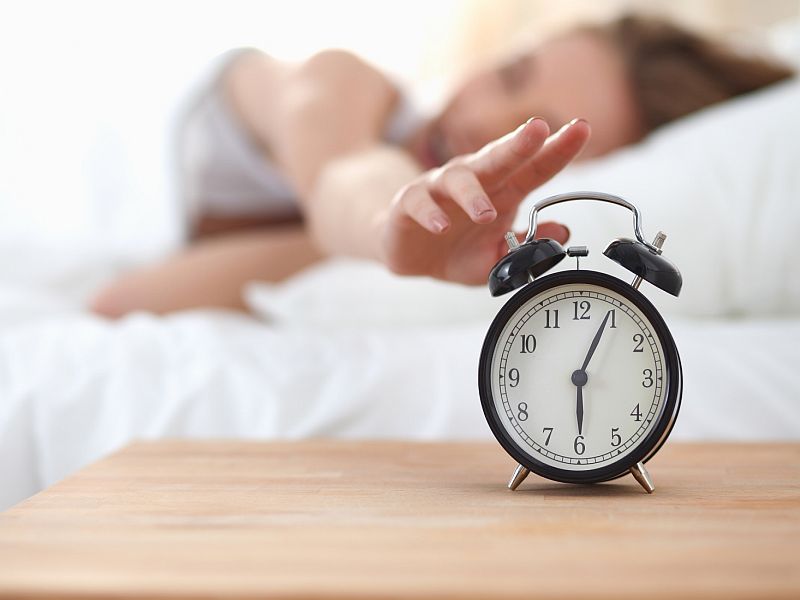THURSDAY, June 27, 2019 (HealthDay News) — If you’re a woman who greets the early morning with a smile, new research delivers good news — you have a slightly reduced risk of developing breast cancer.
For night owls and people who tend to sleep more than the usual seven to eight hours nightly, the analysis suggested a slightly increased risk of breast cancer.
“Sleep does impact health,” said study co-author Caroline Relton, a professor at the University of Bristol in the United Kingdom.
“The study found evidence for a protective effect of morning preference on breast cancer risk,” she said.
What the study team couldn’t tease out from the data was exactly why your sleep type — early bird or night owl — could affect your risk of breast cancer.
Eva Schernhammer, author of an editorial accompanying the study, said “one possible mechanism could relate to the misalignment between internal and external clocks.” She is chair of epidemiology at the Medical University of Vienna in Austria.
The disruption of a normal circadian rhythm can impact how the body functions. An example is the normal variation of melatonin levels, Schernhammer said in her editorial. Melatonin is a naturally occurring hormone.
Dr. Daniel Barone, a sleep specialist at NewYork-Presbyterian and Weill Cornell Medicine in New York City, said that melatonin is a powerful antioxidant.
“If you’re reducing melatonin, that could potentially lead to an inflammatory response in the body,” he said. (Inflammation has been linked to cancer and other health conditions.)
Both Barone and Schernhammer pointed out that night-shift work has been linked to an increased risk of heart disease. Diet may be one reason why. He said it’s harder to find nutritious food options at night, and night-shift workers may get food from places like vending machines. Diet can impact heart disease and breast cancer risk.
The new analysis looked at two large groups of data, which included about 400,000 women altogether.
Previous studies had asked women about their sleep type — whether they preferred morning or evening, how long they slept, and whether or not they had insomnia.
But these researchers controlled the data to account for other factors that can affect breast cancer risk, including obesity, family history of breast cancer, alcohol use and smoking.
Women who said they were “morning people” were slightly less likely to develop breast cancer. The researchers said that early birds had about one less case of breast cancer per 100 women than did night owls.
So, should night owls be worried?
Maybe not just yet, said breast cancer surgeon Dr. Alice Police.
“This study suggests that there may be a lower incidence of breast cancer in ‘morning people,'” she said, but noted that the data in the study is “vague.”
“Until we understand other correlations, such as obesity rates and exercise rates in morning people versus night owls, I do not think definitive conclusions can be drawn,” Police added. She’s the Westchester regional director of breast surgery at Northwell Health Cancer Institute in Sleepy Hollow, N.Y.
Relton agreed that more research is needed, particularly to figure out the underlying reason why morning people seem to have a reduced risk of breast cancer.
In the meantime, she said it’s possible that changing your sleep times to become more of a morning person might change your risk, though more research is necessary before doctors could make a specific recommendation.
If you’d like to try to get some shuteye earlier in the night, sleep expert Barone said the best change you could make is to limit “blue light” at night.
“Any screen you can look at without an additional light on is blue light, and blue light tells our brains that the sun is out and we should shut off melatonin production. Shut off blue light a good hour or so before bed to help keep the body more in tune with what it’s designed to do,” he said.
If you have trouble sleeping, taking a melatonin supplement a half-hour or so before bed can help, Barone noted.
If you’re wondering what else you might do to reduce the risk of breast cancer, editorial author Schernhammer said, “A woman should be more concerned about other, more established, breast cancer risk factors.”
Relton agreed, explaining that risk factors such as alcohol intake and obesity increase the risk of breast cancer much more than your sleeping pattern might.
More information
Learn about preventing breast cancer from the American Cancer Society.
Copyright © 2026 HealthDay. All rights reserved.

